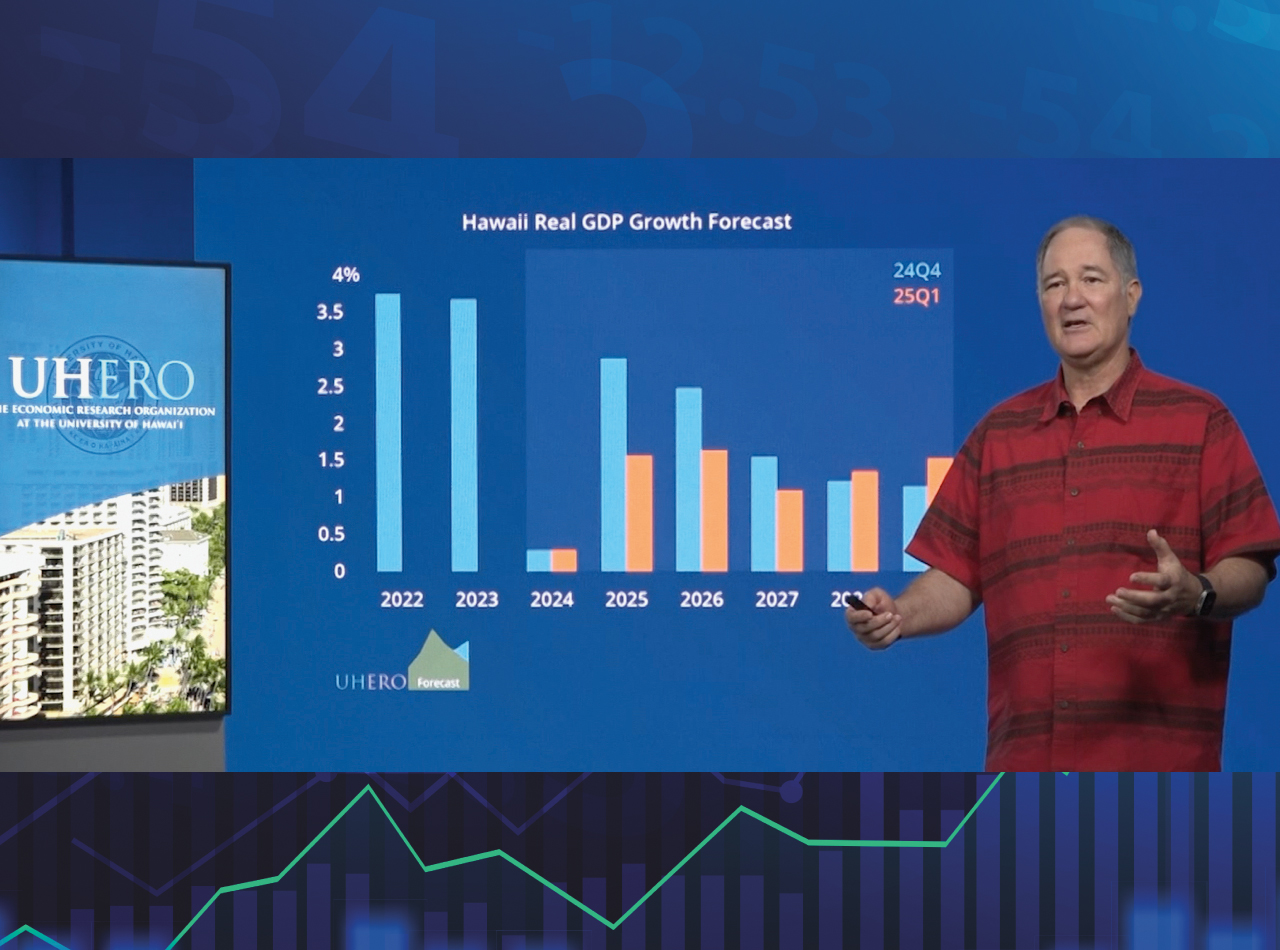Department of Defense (DOD) funding for Hawai‘i military construction will likely range between $1.55 billion and $1.79 billion in 2025. The amounts are based on DOD funding bills from the U.S. House and Senate, respectively.
While Congress will probably not determine the exact total until February or March, Hawai‘i U.S. Rep. Ed Case said in a release last year that the more than $1.55 billion in House funding for Hawai‘i is “the most of any state.”

Ed Case

Case said the bulk of the potential funding — $1.2 billion — will go to Dry Dock 5 at Pearl Harbor Naval Shipyard. Other upcoming projects, he said, include a Joint Base Pearl Harbor-Hickam space control center ($36.6 million), Wheeler Army Airfield maintenance hangars ($115 million) and Marine Corps Base Hawaii aircraft facilities ($204 million).
DRY DOCK 5
Dry Dock 5, valued at $3.2 billion, is currently underway by general contractor Dragados/Hawaiian Dredging/Orion Joint Venture (DHOJV).
“So far, approximately 91 eighty-five-inch-diameter pipe piles and 97 sixty-inch-diameter pipe piles have been installed for the dry dock temporary shoring wall,” says Roy Morioka, DHOJV project manager.
The shoring wall supports construction of the new dry dock. “Once the permanent cast-in-place concrete walls of the dry dock are in place, the temporary shoring wall will remain,” Morioka says. “However, [the pilings] do not contribute structurally to the permanent construction.”
DHOJV is currently building the dock’s underwater floor, which is about 650 feet in length and about 50 feet below the surface of Pearl Harbor.
The floor’s nine precast concrete floor units (PFUs) are fabricated at Waipio Peninsula. Self-propelled modular transporter units move the completed PFUs to the shoreline and onto a semi-submersible barge. A tugboat hauls the barge and the 400-ton PFUs across Pearl Harbor to the Dry Dock 5 jobsite.

“The barge will then submerge underwater until the PFU floats off the barge deck,” Morioka says. “Tugboats and winches will … position the floating PFU within Dry Dock 5 to begin the process of lowering and setting each PFU in place underwater.
“The precast floor units should take approximately two days to set underwater once they are transported to Dry Dock 5,” he says. “Once the PFUs are set in place, tremie concrete will be placed underwater to connect and fill the PFUs which will make up the majority of the permanent dry dock floor.”
All nine concrete sections of the dry dock floor will be in place by summer 2025, Morioka says. DHOJV’s focus this year will be building the dry dock structure, land reclamation and installation of underground utilities.

NEW DEFENSE PROJECTS
Other current DOD projects by Hawai‘i contractors are also vital to the support of U.S. troops and U.S. interests in the Pacific.
Nordic PCL Construction Inc. (NPCL) broke ground in January last year on Building 2077 at Schofield Barracks. The $25.7 million U.S. Army Corps of Engineers project is a “complete renovation of an existing five-story building located in the heart of an active military base,” says NPCL Project Manager Danyelle Kahanaoi.

“Scope of work includes the conversion of single-bedroom units into upgraded single- and two-bedroom units including demolition, replacement of all mechanical, electrical and plumbing systems, walls, ceilings, flooring, finishes, windows, fixtures and the addition of the building fire sprinkler system,” she says.
NPCL is also adding three service rooms to each floor, refurbishing previous mechanical and electrical rooms, and upgrading interior EFS finishes and the building’s exterior. NPCL expects to wrap in October this year.
Kahanaoi is using StructionSite at Building 2077 “for capturing progress photos through the course of the project, especially for in-wall and above-ceiling progress prior to drywall installation.” BIM Field is used for ongoing quality control, punch list, corrections and inspections, and Navisworks 3D modeling for MEP/FS utility coordination prior to the start of construction and for material procurement and clash detection.



NPCL also broke ground last March on Building 118 at Wheeler Army Airfield. Scope of work on the $27.2 million, three-story Army barracks renovation “includes the complete demolition of the interior finishes, structural walls and mechanical, electrical, plumbing and fire sprinkler systems with civil and landscaping [work] at the exterior,” says NPCL Project Manager Ken Walker.
“We are converting two units [throughout the barracks into single, two-bedroom units] and shared accommodation spaces such as the living room, kitchen and bathroom,” Walker says.
NPCL expects to wrap in September 2026.


Ryan Nakaima
Tech programs at Building 118 are “Autodesk Construction Cloud, which includes Build, Docs, Model Coordination, AutoSpecs and Insight,” Walker says. “These items help with the organization of a project’s RFI, submittals, modeling and clash detection, punch list and closeout.
Nan Inc.’s new BEQ project at Marine Corps Base Hawaii, valued at $174.6 million, is expected to wrap in June 2029.
“This new BEQ project replaces existing antiquated BEQ facilities with modern accommodations that will enhance quality of life for the enlisted personnel,” says Ryan Nakaima, Nan Inc. senior vice president.
With substantial federal funding and spillover work from Dry Dock 5 ahead, Hawai‘i contractors can look forward to even more new projects in 2025.




